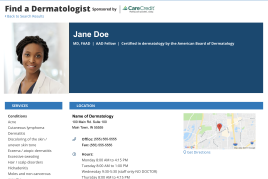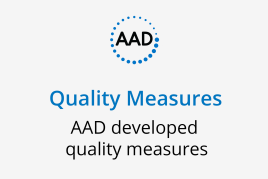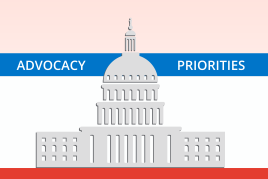If want to be a true leader, emulate the first president
 By Warren R. Heymann, MD
By Warren R. Heymann, MDJuly 30, 2017
I recently had a discussion with our departing chief resident as he was about to embark on his academic career at UCLA. He was looking for sage advice — I focused on the need to maintain enthusiasm, wonder, curiosity, and dedication to one’s patients, as we enter the turbulent seas of health care delivery during the next several years.
Niraj Butala will be an outstanding academician. I owe him an apology though. In retrospect, what he was looking for was advice on how to become a leader in our field. This commentary will address that aspiration.
I believe in nature and nurture, with emphasis on the latter. We all have different personalities, abilities, goals and interests. While some leaders may be “born,” anyone with the intelligence to finish medical school can be trained in skills that benefit their patients, peers, and organizations.
Being a chair means being able to juggle myriad responsibilities, including faculty academic affairs, student affairs, budgetary requirements, research, and alumni issues and community relations (1). As difficult as practice may be, the time devoted to clinical responsibilities may be the most straightforward of the day. There is increasing evidence that the “emotional intelligence” required for teamwork, conflict resolution, and other leadership competencies, can be addressed in training workshops, such as those offered to chief residents at the Cleveland Clinic. (2)
Anyone in leadership positions (or anyone period) has encountered stressful situations that, in retrospect, wish they would have handled differently. I know that I have; far too many times that I would like to admit. For guidance, there are a dizzying number of resources about leadership in the business world and healthcare (take one look at Amazon). My sense is that quality leadership skills are applicable in all disciplines.
The most important book I have ever read on how to be an effective leader is George Washington’s Leadership Lessons by James C Rees. I purchased it in the Mount Vernon bookshop and was mesmerized by it. The teachings are timeless. Despite the fact that some might scoff at them, I contend that if you do your best to adhere to Washington’s philosophies, you will go far.
The book begins with a quotation from Edmund Burke:
The great difference between the real leader and the pretender is that the one sees into the future, while the other regards only the present; the one lives by the day, and acts upon expediency; the other acts on enduring principles and for the immortality.
I encourage you to read each leadership lesson carefully and reflect on every one.
A leader has vision
A leader is honest
A leader has ambition
A leader is courageous
A leader has self-control
A leader takes personal responsibility
A leader is determined
A leader has a strong work ethic
A leader uses good judgment
A leader learns from mistakes
A leader is humble
A leader does the research and development
A leader values presentation
A leader exceeds expectations
A leader has heartfelt faith
Rees quotes the historian David McCullough: “Washington was not, as were Adams, Jefferson, Franklin and Hamilton, a learned man. He was not an intellectual. Nor was he a powerful speaker like his fellow Virginian Patrick Henry. What Washington was, above all, was a leader. He was a man people would follow.” Rees follows, “And he always led with a greater good in mind. This is the mark of a leaser whose legacy lives on.”
And so, my new colleague Niraj, my professional advice to you (and others), is to emulate our first president. Have your vision and make it a reality utilizing the lessons that Washington espoused. The world will be a better place for your effort.
1. Slakey DP, et al. The modern surgery department chairman: The job description as identified by chairmen. JAMA Surg 2013; 148: 511-5.
2. Farver CF, et al. Developing leadership competencies among trainees: Five-year experience at the Cleveland Clinic with a chief residents’ training course. Australas Psychiatry 2016; 24: 499-505.
All content found on Dermatology World Insights and Inquiries, including: text, images, video, audio, or other formats, were created for informational purposes only. The content represents the opinions of the authors and should not be interpreted as the official AAD position on any topic addressed. It is not intended to be a substitute for professional medical advice, diagnosis, or treatment.
DW Insights and Inquiries archive
Explore hundreds of Dermatology World Insights and Inquiries articles by clinical area, specific condition, or medical journal source.
All content solely developed by the American Academy of Dermatology
The American Academy of Dermatology gratefully acknowledges the support from Incyte Dermatology.
 Make it easy for patients to find you.
Make it easy for patients to find you.
 Meet the new AAD
Meet the new AAD
 2022 AAD VMX
2022 AAD VMX
 AAD Learning Center
AAD Learning Center
 Need coding help?
Need coding help?
 Reduce burdens
Reduce burdens
 Clinical guidelines
Clinical guidelines
 Why use AAD measures?
Why use AAD measures?
 Latest news
Latest news
 New insights
New insights
 Combat burnout
Combat burnout
 Joining or selling a practice?
Joining or selling a practice?
 Advocacy priorities
Advocacy priorities
 Promote the specialty
Promote the specialty

